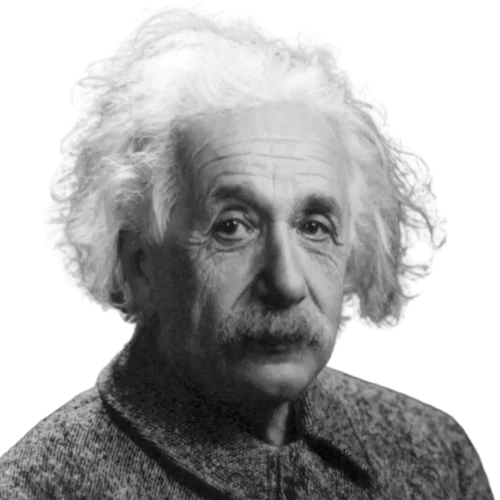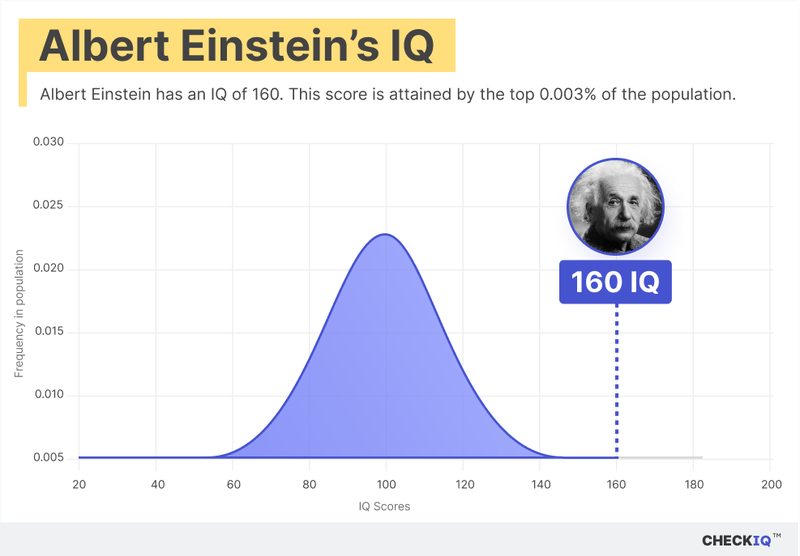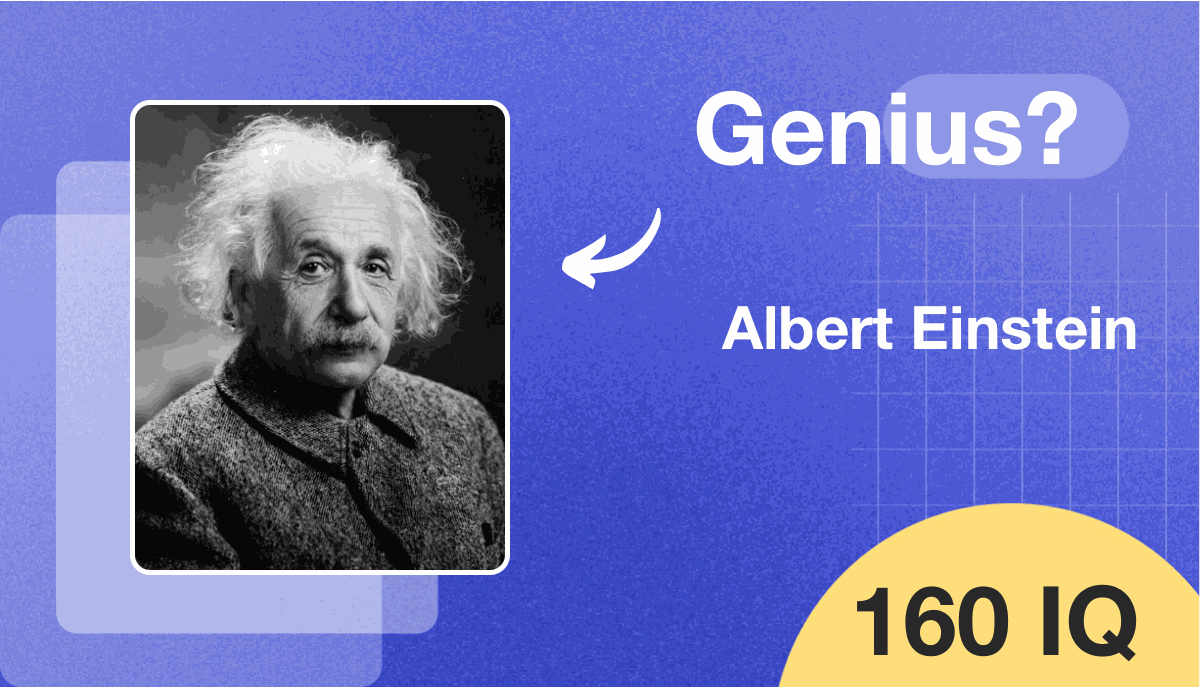Einstein IQ: Unraveling The Genius Behind The Numbers
Albert Einstein's IQ has long been a topic of fascination and intrigue for people around the world. The legendary physicist, whose contributions to science have shaped modern physics, is often associated with extraordinary intelligence. But what exactly was Einstein's IQ? And how does it compare to the general population? This article delves into the intricacies of Einstein's intellectual capacity, examining his life, achievements, and the myths surrounding his intelligence.
Albert Einstein's name has become synonymous with genius, and much of this association stems from his purported IQ. While many people believe Einstein possessed an IQ far beyond the average, the truth is more nuanced. Understanding the relationship between Einstein's intellectual abilities and his contributions to science requires a deeper exploration of his life and work.
This article aims to provide a comprehensive overview of Einstein's IQ, separating fact from fiction. By examining his life, scientific achievements, and the context of his time, we can gain a clearer understanding of what made Einstein one of the most brilliant minds in history. Let's begin by exploring the man behind the legend.
Biography of Albert Einstein
Early Life and Education
Albert Einstein was born on March 14, 1879, in Ulm, Germany. From a young age, Einstein displayed an insatiable curiosity about the world around him. Although his early education was unremarkable, his passion for mathematics and physics began to emerge during his teenage years. He attended the Swiss Federal Polytechnic in Zurich, where he developed a deep understanding of theoretical physics.
A table summarizing Einstein's personal and professional details is provided below:
| Category | Details |
|---|---|
| Full Name | Albert Einstein |
| Date of Birth | March 14, 1879 |
| Place of Birth | Ulm, Germany |
| Date of Death | April 18, 1955 |
| Place of Death | Princeton, New Jersey, USA |
| Field of Expertise | Theoretical Physics |
Major Contributions to Science
Einstein's contributions to science are monumental. His most famous work, the theory of relativity, fundamentally changed our understanding of space, time, and gravity. In addition to his groundbreaking theories, Einstein published over 300 scientific papers and won the Nobel Prize in Physics in 1921 for his explanation of the photoelectric effect.
What Was Einstein's IQ?
The exact value of Einstein's IQ remains a subject of debate. While some sources claim his IQ was as high as 160, no definitive evidence exists to support this figure. IQ tests as we know them today were not widely used during Einstein's lifetime, making it impossible to assign a precise number to his intellectual capacity.
Understanding Intelligence: Beyond IQ
Defining Intelligence
Intelligence is a multifaceted concept that cannot be fully captured by a single number. While IQ tests measure certain cognitive abilities, such as problem-solving and logical reasoning, they do not account for creativity, emotional intelligence, or other forms of intelligence.
Einstein's Intellectual Traits
Einstein possessed several intellectual traits that contributed to his success:
- Creativity: Einstein's ability to think outside the box allowed him to develop revolutionary theories.
- Critical Thinking: His knack for questioning established norms enabled him to challenge existing scientific paradigms.
- Curiosity: Einstein's lifelong curiosity drove him to explore the mysteries of the universe.
Myths and Misconceptions About Einstein's IQ
Several myths surround Einstein's intelligence, including the belief that he failed mathematics as a child. In reality, Einstein excelled in mathematics from a young age, and his early struggles in school were more related to his unconventional learning style.
Comparing Einstein's IQ to Others
Historical Context
Placing Einstein's IQ in historical context reveals that his intellectual prowess was exceptional, but not necessarily unparalleled. Other historical figures, such as Leonardo da Vinci and Isaac Newton, are also considered intellectual giants.
Modern Comparisons
In today's world, individuals with high IQs are often found in fields such as mathematics, physics, and computer science. However, intelligence alone does not guarantee success; factors such as perseverance, opportunity, and collaboration also play crucial roles.
The Role of Environment in Shaping Genius
Early Influences
Einstein's upbringing and education played significant roles in shaping his intellectual development. His exposure to scientific literature and philosophical ideas at a young age nurtured his curiosity and analytical skills.
Collaboration and Mentorship
Throughout his career, Einstein benefited from collaborations with other brilliant minds. These interactions helped refine his theories and expand his intellectual horizons.
Einstein's Legacy in Modern Science
Einstein's influence on modern science extends far beyond his lifetime. His theories continue to inspire new generations of scientists, and his approach to problem-solving remains a model for innovation.
How Einstein's IQ Impacts Our Understanding of Intelligence
Einstein's life and work challenge traditional notions of intelligence, emphasizing the importance of creativity, curiosity, and critical thinking. By studying Einstein's intellectual journey, we gain insights into the nature of genius and the potential for human achievement.
Table of Contents
For easy navigation, here is a table of contents with links to the main sections:
- Biography of Albert Einstein
- Early Life and Education
- Major Contributions to Science
- What Was Einstein's IQ?
- Understanding Intelligence: Beyond IQ
- Einstein's Intellectual Traits
- Myths and Misconceptions About Einstein's IQ
- Comparing Einstein's IQ to Others
- The Role of Environment in Shaping Genius
- Einstein's Legacy in Modern Science
Conclusion
Albert Einstein's IQ remains a topic of fascination, but it is only one aspect of his extraordinary life and achievements. By exploring his intellectual traits, contributions to science, and the context of his time, we gain a deeper appreciation for what made Einstein a true genius. As we continue to study his work, we are reminded of the power of curiosity, creativity, and critical thinking in driving human progress.
We invite you to share your thoughts and insights in the comments section below. For more articles on science, history, and intellectual giants, explore our website and discover the stories that shape our world.
References:
- Isaacson, Walter. "Einstein: His Life and Universe." Simon & Schuster, 2007.
- Smithsonian Magazine. "The Genius of Albert Einstein." Accessed October 2023.
- National Geographic. "Albert Einstein: The World's Most Famous Genius." Accessed October 2023.


